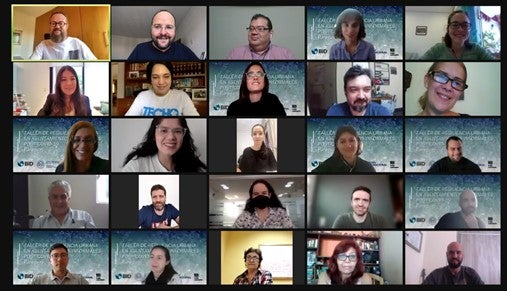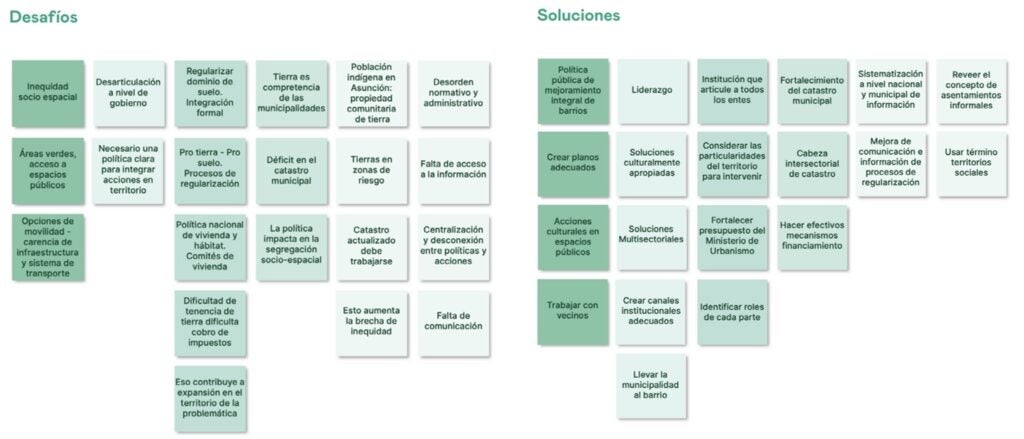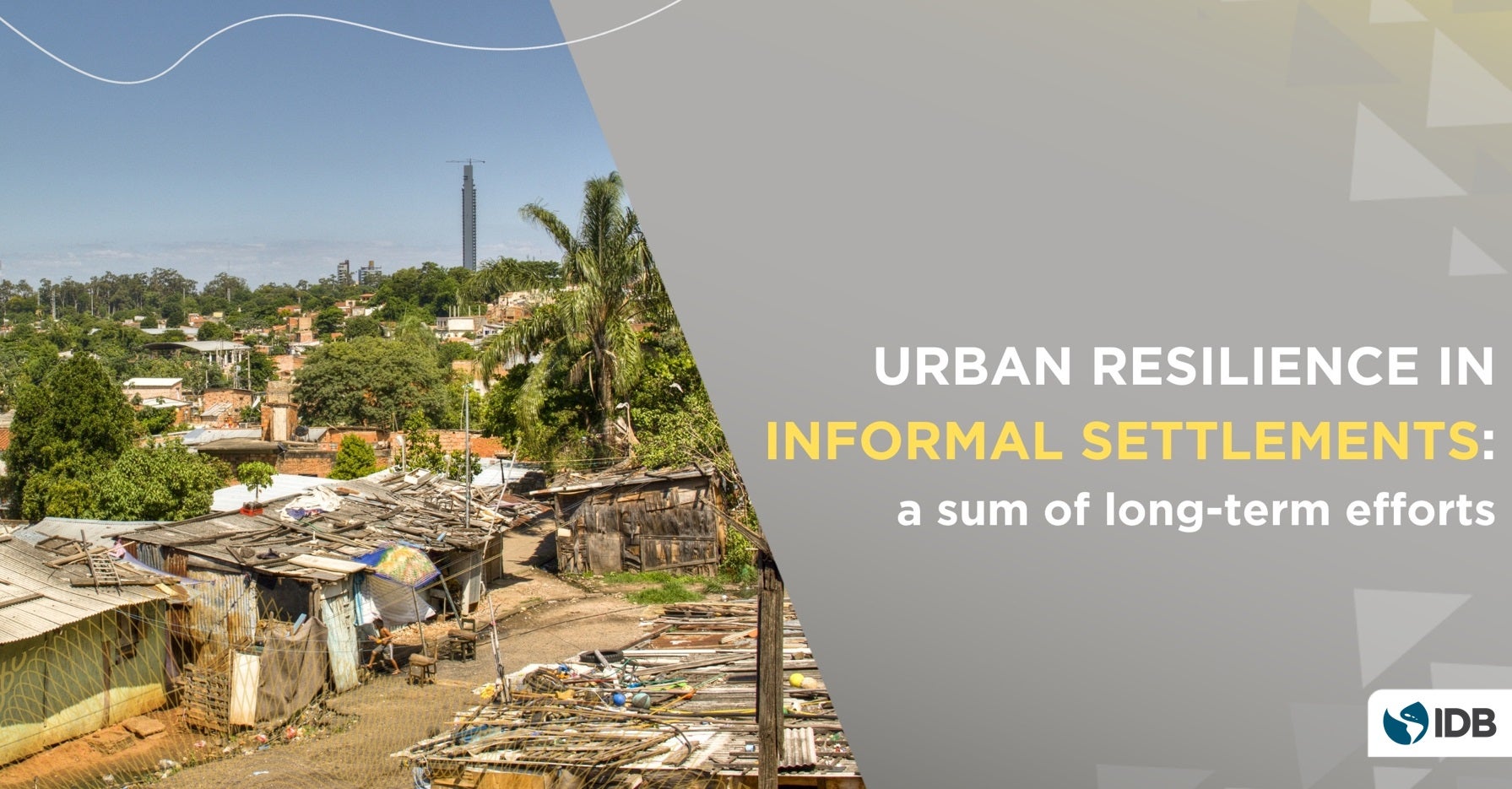Este artículo está también disponible en / This post is also available in: Spanish
It is essential to address the problem of informal settlements in our cities. Issues such as the effects of climate change, migrations, health crises, the exorbitant transformations of the territory and the change in socio-urban dynamics makes it more necessary than ever to take action to address urban informality.
During the last weeks we have addressed the situation of urban informality in Paraguay, its challenges, opportunities, and the role of organized civil society to reduce the housing gap in the country. Today, in the last blog of this series, we share the results obtained in the “Workshop on Urban Resilience in Informal Settlements post COVID 19”.
Keep reading to do not miss any detail!
Defining the problems and challenges of urban informality in Paraguay
Great remedies to great problems. The complexity of the problems of informal settlements in our region makes it necessary to address them in a multisectoral manner. Reversing urban vulnerability from multiple dimensions requires participatory and articulated work by the actors involved, both in the public and private spheres. Only then efficient and sustainable solutions can be found over time. Therefore, to put this objective into practice, prior to the “Workshop on Urban Resilience in Informal Settlements post-COVID 19”, a survey was conducted for participants from civil society and government institutions. The objective was to define in advance the priority topics and objectives that would mark the debate and participatory dialogue.
Although the number and variety of dimensions that a comprehensive approach requires is wide, as a result of the survey, four priority topics for discussion were defined. In line with these results, for the development of the Workshop, four thematic rooms were created in which the participants discussed the challenges related to informal settlements in the face of COVID-19 in Paraguay. Below, we describe the experiences in each of these four sessions:

1. Information based on informal settlements:
Having accurate information is essential to understand the problem and different dimensions of any topic. The limitation of up-to-date data regarding the location, quantification, and characterization of informal settlements, in their multiple dimensions, makes it even more difficult to plan and formulate specific policies and projects.
Among the challenges and solutions to face this challenge were mentioned:
- the need for a unified definition of informal settlement
- the articulation and unification of the database and its language
- the use of technological tools as an opportunity to monitor settlements
- inter-institutional articulation
- strengthening institutional technical capacities at the national and municipal levels
- sustainability through periods of government
2. Access to basic services:
Access to basic services in informal urban areas is a great global challenge, and particularly in our region. According to the TECHO RAP of 2015, in the metropolitan area of Asunción, there were around 405 settlements with more than 38 thousand inhabitants. Of the total number of settlements, only 0.7% of those distributed throughout the Metropolitan Area of Asunción had sanitary sewerage. The rest are listed below:
- 74.1% had a latrine or toilet connected to a cesspool
- 17.3% with septic tanks
- 4.2% with canals connected to watercourses
- 3.7% did not have any kind of wastewater care system.
The topics addressed in the participatory web-room were:
- the need to expand the coverage of the water, sanitation, and drainage services network
- the need to expand the basic service concept to include issues of connectivity, mobility, habitat, quality public space and management of Urban Solid Waste (MSW).
- the challenge of regularizing property ownership was recognized,
- the implementation of social rates and gradual formalization for sustainability, incentives for the responsible use of services, training and user awareness.
3. Informal economy and training:
Labor informality and lack of opportunities have historically contributed to the circle of poverty in several communities in the region. The consequences of COVID-19 are unequally affecting the population that subsists on informal activities. This is due to the lack of social security, higher risk of contagion, less access to health services and assistance mechanisms and, therefore, less resilience to crises of this type.
The challenges discussed in the web-room were:
- the lack of training of the population in trades and ICTs
- lack of access to information and job offers
- the need to regularize the identity documentation of people
- the difficulty of work-home mobility
- the connection between labor supply and demand
- the need to incorporate the gender approach
- the need for incentives for formalization and for robust social security available to all
4. Socio-urban integration:
This theme, due to its macro scale, integrates the others already mentioned. However, in turn, it adds a series of factors derived from the use and human transformation of the territory, fostering reflection when seeking solutions to problems in a holistic and not isolated manner.
These vulnerable neighborhoods suffer from multidimensional social exclusion. Not only are they physically disconnected from the consolidated urban fabric, but they are also limited in their access to services and opportunities. The task of weaving more equitable and resilient urban territories and habitats requires a social, economic, environmental, and institutional vision.
The topics addressed in the web-room were:
- lack of infrastructure
- the need to regularize land tenure for formal integration
- the integration of minorities, indigenous communities, and the gender approach
- the strengthening of municipal technical capacities
- the need for the National Housing and Habitat Policy and Neighborhood Improvement Policies
- the need for an institutional and multisectoral articulation
- the implementation of real estate capital gains instruments
- the strengthening of institutions with interference in territorial policies
- a clear definition of leadership in land use planning issues
Shared vision: challenges and solutions
The Workshop demonstrated the importance of establishing spaces for participatory reflection that motivate, inspire, and give voice to those interested in finding long-term solutions. Likewise, it offered a framework for consensus decision-making, with the possibility of being executed in a sustained manner over time.
Below is a summary in Spanish of the challenges and solutions proposed to address this important issue for Paraguay, but also for the rest of the region.

If you enjoyed this blog, sign up here to receive our monthly newsletter with all the blogs, news, and events from the IDB’s Housing and Urban Development Division.


Leave a Reply